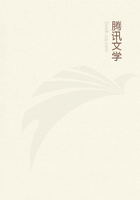
第41章 THE MODERN LAWS OF WAR.(5)
'Ambulance end military Hospitals shall beacknowledged to be neutral,and as such shall be protected and respected by belligerents so long as anysick or wounded may be thereinSuch neutrality shall cease if the ambulancesor Hospitals should be held by a military forcePersons employed in Hospitalsand ambulancescomprising the staff for superintendencemedical service,administrationtransport of woundedas well as chaplainsshall participatein the benefit of neutrality while so employedand so long as there remainany wounded to bring in and to succour.The persons designated in the precedingarticle may even after occupation by the enemy continue to fulfil their dutyin the Hospital or ambulance which they serveor may withdraw in order torejoin the corps to which they belongUnder such circumstanceswhen thosepersons shall cease from their functions they shall be delivered by the occupyingarmy to the outposts of the enemyAs the equipment of military Hospitalsremains subject to the laws of warpersons attached to such Hospitals cannoton their withdrawing carry away any articles but their own private property;and under the circumstances an ambulance shallon the contraryretain itsequipmentInhabitants of the country who may bring help to the wounded shallbe respected and remain freeThe Generals of the belligerent Powers shallmake it their care to inform the inhabitants of the appeal addressed to theirhumanityand of the neutrality which shad be the consequence of itAnywounded when entertained and taken care of in a house shall be consideredas a protection theretoAny inhabitant who shall have entertained woundedmen in his house shall be exempted from the quartering of troopsas wellas from a part of the contributions of war which may be imposedWoundedor sick soldiers shall be entertained and taken care ofto whatever nationthey may belongCommanders-in-chief shall have the power to delver immediatelyto the outposts of the enemy soldiers who have been wounded in an engagement,when circumstances permit it to be doneand with the consent of both parties.
Those who are recognisedafter their wounds are healedas incapable ofservingshad be sent back to their countryThe others may also be sentback on condition of not again bearing arms during the continuance of thewarEvacuationstogether with the persons under whose directions they takeplaceshall be protected by absolute neutralityA distinctive and uniformdag shall be adopted for Hospitalsambulancesand evacuationsIt muston every occasion be accompanied by the neutral flagA badge for the armshall also be allowed for individuals neutralizedbut the delivery thereofshall be left to the neutral authorityThe flag and the badge shall beara red cross on a white ground.
The conduct of the Hospitals established under the Geneva Convention hasbeen carried on by surgeonsnursesand military servantswith the greatestself-sacrifice and with the greatest enthusiasmNothingI hopewill everoccur to provoke retrograde measures with regard to so great a reformAtthe same time there are some drawbacksfrom a military point of viewtothe application of the provisions of the Geneva Conventionon which I willsay a few words in conclusionI am told on very excellent authority thatit is very difficult to persuade military commanders in the field of theperfect fairness and good faith with which these provisions are carried intoactionYou may not fire on a Geneva Hospital or ambulanceand yet the GenevaHospitalwith its ambulances and appurtenances generally kept a good dealin motionis a very extensive set of structuresand protects a considerableportion of the field from the line of fireGenerals are apt to thinkorto persuade themselvesthat the Hospital has been put in a locality eitherexpressly designed to cover the fire of one party or anotheror to preventthe fire of one party from being as effective as it might beThere isIam persuadeda great deal of delusion about these suspicionsdelusion unhappilyof the nature which is constantly arising in the minds of men actually engagedin a deadly struggleAll that we have a right to say here isthat the mostabundant good faith should beused in the localization and use of thesebeneficent mitigations of the hardships of warand that no punishment wouldbe too severe for an officerno matter his rankwho knowingly used themfor the purpose of inflicting warlike injury on an opponent.